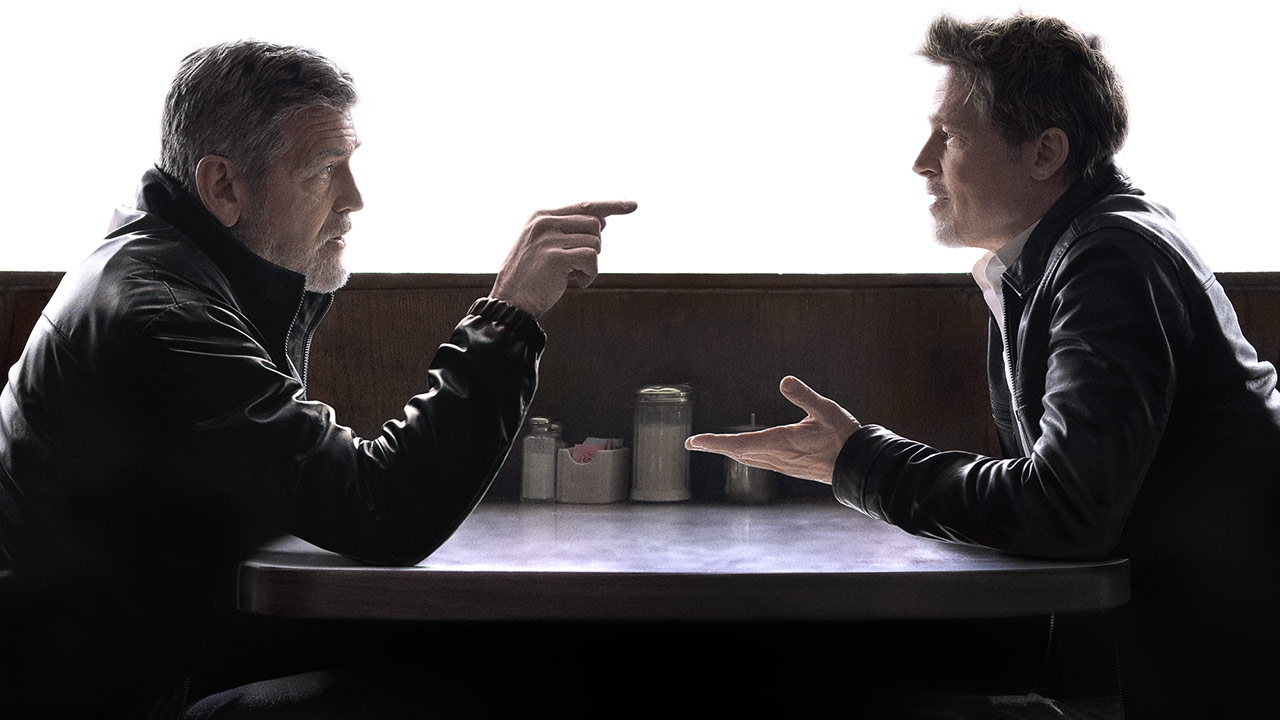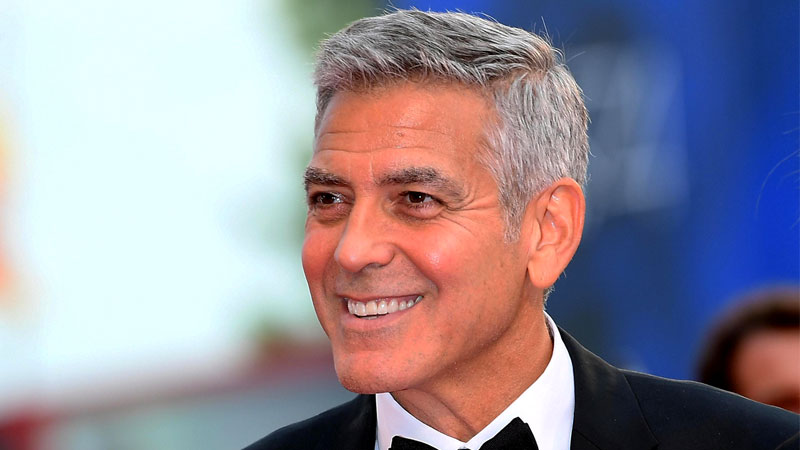THERE'S no mystery, none at all, about why George Clooney is a movie star. Guys who are extremely handsome, move well, can project intelligence and humor, appear to enjoy the company of women and possess soft, deep masculine voices have historically done pretty nicely for themselves on the silver screen.
Mr. Clooney, in fact, often seems like a throwback to the leading men of earlier eras: a passing resemblance to Cary Grant, especially when he deploys his wry half-smile; a hint of Paul Newman's '60s cool. He's the kind of actor who could float along forever on his genial presence alone, coast on charm. But he doesn't. (Or doesn't always.) That's the mystery.
His performance in Jason Reitman's "Up in the Air" has put him in early contention for this year's best actor Oscar, and a more effective showcase for his skills would be tough to imagine. Playing an Omaha business consultant named Ryan Bingham, who flies around the country firing people for a living (but with a gentle touch) and occasionally delivers motivational speeches in which he advises his listeners to shed the burdens of responsibility, Mr. Clooney appears in every scene and exudes all-American confidence. Dressed in impeccably cut suits and wheeling his carry-on bag with the deftness of a seasoned pro, he glides through airports and chain hotels as if he owned them, as in a sense he does.
Ryan is on the road, we're told, for more than 300 days a year, and these impersonal places are — by choice — his true home. Instead of family photos, his wallet is filled with cards proclaiming his membership in the elite clubs reserved for the highest-volume business travelers, badges of identity supplied by airlines, hotels, car-rental agencies. It doesn't seem like much of a life, but it suits him down to the ground. (So to speak.) The big nowhere is his comfort zone.
What makes "Up in the Air" an ideal vehicle for Mr. Clooney is that everything he has to do in the film is just the smallest shade of difference away from his familiar amiable persona. Movie-star performing is a peculiar, poorly understood subset of the art of acting: it relies on a certain constancy of personality, on the ability to seem at all times as if you were simply playing yourself and to give the audience the illusion that they, somehow, know you — you the person, not just you the character.
For actors like Mr. Clooney, who work without the benefit of wigs and false noses and exotic accents, the line between self and character can be mighty thin. In the olden days — i.e., the studio era, when all but the most ornery contract players made several films a year and did what their bosses told them — popular actors were deliberately confined to a fairly narrow range of parts: typecast, so that moviegoers would always get more or less what they expected when they plunked down their two bits for a Cagney gangster picture, say, or a Gary Cooper western.
Successful actors have a lot more power now. If they choose to, they can typecast themselves — as action heroes, for example, or romantic-comedy leading men. Early in his film career, after the television series "ER" had made him an official hot property, Mr. Clooney toyed with some of the more conventional types: as a romantic comedian, opposite Michelle Pfeiffer, in the pleasant but inconsequential "One Fine Day" (1996); as a stolid, Harrison Ford-like man of action, in uniform, in the dull "Peacemaker" (1997); and even, God help him, as a comic-book superhero, in the catastrophic "Batman & Robin" (1997).
When he finally found a role in which he looked entirely at ease, it was in a film that was neither a standard-issue piece of studio entertainment nor quite an offbeat indie, but something in between: Steven Soderbergh's tricky comic caper movie "Out of Sight" (1998), based on a novel by Elmore Leonard, and with all the noirish eccentricity that implies. Mr. Leonard's skewed world, in which competence, wit and unfussy romance are highly prized — and constantly endangered, because there are always way too many thugs and morons about — turns out to be an environment in which Mr. Clooney (if not his character) can thrive.
His performance is all sly looks and bone-dry readings, held together by a general air of barely contained exasperation at the antics of the fools and knaves who surround him. And although he's a thief and an escaped convict, he looks with undisguised admiration at the United States marshal who's trying to bring him to justice: she knows her job, and she's Jennifer Lopez besides.
His style in "Out of Sight" is too elusive, too stylized — it's like lowlife Restoration comedy — to serve as a repeatable, bankable star persona, but it's the foundation, in a way, for everything good he's done since then, the theme on which he works his small, increasingly subtle variations. The larcenous gulf war soldier he plays in David O. Russell's inventive "Three Kings" (1999) is a tougher, slightly bitterer version of his "Out of Sight" character, and it fits.
And Danny Ocean, the suave criminal he has played in Mr. Soderbergh's neo-Rat Pack heist comedies "Ocean's Eleven" (2001), "Ocean's Twelve" (2004) and "Ocean's Thirteen" (2007), is the blither, cooler model, with better clothes and better luck. But the Ocean movies, which are among the few box-office hits Mr. Clooney has had, are really the only occasions in the past decade in which he has indulged in purely personality-based acting, allowed himself the luxury of movie-star nonchalance. (And he still manages to break more of a sweat than Frank Sinatra did in the original 1960 "Ocean's Eleven.")
He hasn't typecast himself, really. It's fairer to say that he has chosen his roles with an extremely canny awareness of his range, which doesn't extend to the more outré regions of human behavior. (We have Johnny Depp and Daniel Day-Lewis for that.) Even his nutty comic turns in the Coen brothers' "O Brother, Where Art Thou?" (2000) and "Burn After Reading" (2008) are relatively restrained, especially compared with the out-there performing styles of his fellow cast members.
You wouldn't want to see him as Richard III, and he's smart enough not to try. He works the territory of 21st-century American normality, playing — now, at 48 — middle-aged men who are good at what they do and getting by, for the moment, but are beginning to feel stirrings of doubt and dread. These days there are quite a few of those guys around, and they aren't all the same guy either. Ryan Bingham is one of them, of course, but his slow-dawning suspicion that traveling light might not be all there is to life is a different order of dissatisfaction from the mortal panic felt by Bob Barnes, the C.I.A. field operative Mr. Clooney plays in Stephen Gaghan's 2005 "Syriana."
In that film he strays about as far from recognizability as he ever has — though it's not, in truth, that far. He's chunkier than usual, more rumpled, wearier-looking, and he sports a beard that he appears not to pay a lot of attention to: the beard of a man who has spent too much time chasing terrorists in the brutal heat and tumult of the Middle East and can't be bothered to shave. He's disguised just enough, it seems, for the academy to notice that he's acting: he won a supporting actor Oscar for the performance.
Whenever an actor as nuanced and unostentatious as Mr. Clooney receives an Academy Award, it's a bit of a shock, because the academy tends to favor gaudier, more obviously strenuous stuff: the big, sloppy emotions Mr. Clooney doesn't traffic in. (If he's nominated, the best-actor race could be particularly interesting, because another likely frontrunner, Jeff Bridges of "Crazy Heart," is that sort of actor too.)
Being a movie star has its creative pitfalls, chief among them narcissism and laziness. If all you have to do is play your own wonderful self, you needn't expend much time or energy trying to bring a character to screen life — a unique human being with specific, maybe interesting, quirks and problems. You fall for your own self-created illusion. But if an actor can avoid that trap, there are serious benefits to movie stardom too, and Mr. Clooney seems to know how to exploit the advantage his good looks and charm have given him. The unfair fact is that his kind of appeal can be a fast track to character, like one of those express lines frequent fliers enjoy.
Movie stars don't have to work for the audience's attention; they've got it as soon as they appear on screen, and once they have it, they can, if they have the inclination and the chops, go about their proper business of exploring behavior in its minutest, most unpredictable particulars. That's what George Clooney does in "Up in the Air," while seeming only to be himself.
And it's what he did in his first best-actor-nominated performance a couple of years ago, as the title character in Tony Gilroy's dark corporate thriller "Michael Clayton" (2007). In that movie Mr. Clooney plays a depressed and disappointed man: an ex-cop who fixes messy situations for a giant New York law firm and never lets his ambivalence show. Never, that is, until the very end, when, after some unsatisfying, compromised version of justice has been achieved through Clayton's efforts, he allows himself to relax a little at last.
He flags a taxi, slumps into the back seat and tells the cabbie to drive, and it's only then that you understand how eloquent Mr. Clooney's body language has been throughout the preceding two hours — how tensely he's been holding himself, how warily he's been sizing up his dangerous world. As he sits in the cab, just riding, the camera stays on him for two full minutes. He does nothing, apparently. His expression hardly changes. But you can feel the weight of what he's been through in his blankness, his emptied-out eyes. You can't stop looking at him. It's a great, daring piece of acting. Only a movie star could get away with it.
Da The New York Times, 10 gennaio 2010



.jpg)

![# The Midnight Sky, il trailer finale del film [HD]](https://pad.mymovies.it/cinemanews/2020/172737/coverlg_home.jpg)
![# The Midnight Sky, il trailer ufficiale del film [HD]](https://pad.mymovies.it/cinemanews/2020/171902/coverlg_home.jpg)




